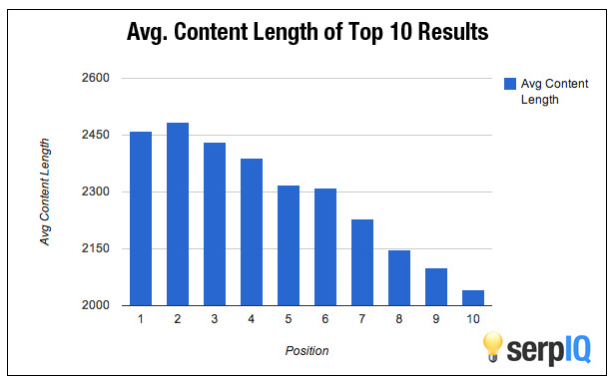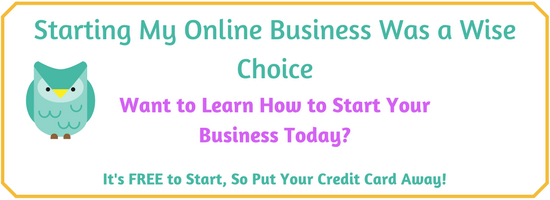The debate rumbles on and can easily become an obsession for many bloggers. I’ve read dozens of articles about what is the best length for a blog post? Opinions vary widely, and frustration can build when a new blogger encounters answers like “it depends.”
Or, perhaps you’ve seen this popular answer to the question of blog post length. Your post should be “only as long as it needs to be to address your topic.” Hmmm. On some level that response makes sense, but it sure doesn’t provide much guidance, does it?
But when I started to focus on the nature and purpose of my articles as a niche affiliate marketer, I began to see more definitive guidelines evolve. I’m not suggesting I have the magic bullet. Wouldn’t that be nice? 🙂 But when I read a recent post by Hubspot indicating the ideal blog post length is roughly 2,100 words, their contention made a lot of sense to me,
Evidence exists that longer posts are more effective from an SEO perspective, highly valuable to potential customers, and more likely to be shared on social media platforms.
Please join me as I talk about some of the critical reasons why a longer blog post seems appropriate for us marketers.
The Value of Longer Content
Do you want more organic traffic from Google?
That’s a silly question, right? Of course, you do! Nothing can top the value of free organic traffic from the search engines. The goal of every affiliate marketer is to increase their search engine visibility and improve their rank in google. Hopefully, to achieve that coveted first position on Google page 1.
Numerous studies, several of which are cited in the Hubspot article mentioned above, show that you get the most Google juice with content around 2,500 words. Search engines love and reward long, comprehensive posts that focus on problem-solving,
Google is all about quality content. It’s not a word count thing, and more does not necessarily equate to better. However, a long article that’s well written affords ample opportunities to flesh out ideas and can take the time to address more customer concerns.
It’s that correlation between length and the ability to add exceptional value that’s critical. Writing more and choosing your words wisely is a winning combination.
So, Why Should You Strive for Longer Articles?
With a longer post, we have an increased opportunity to include a lot more information and, therefore, pack in more value. Most blog topics are multi-faceted, and options exist to expand the article and incorporate related concepts.
Bloggers don’t always choose this route because crafting lengthy posts is time-consuming and we’re typically eager to publish more frequently. A 2,500-word post can feel daunting.
I get that!
But in my experience, it can be well worth the effort to go all out occasionally. It’s not that shorter posts won’t rank, but I’ve found that massive articles get to page 1 far more quickly. Nothing beats the crazy-sweet pleasure of publishing and seeing your work at the very top of search engine results almost immediately.
There’s certainly no guarantee, and I would never imply that longer is always better. Google uses 200 plus ranking factors to evaluate web contributions, and our knowledge of their ranking factors is somewhat vague. But I’m convinced that size definitely matters.
Here are some key SEO factors to consider.
- More extensive authoring efforts provide increased potential for incorporating more keywords and improving your chances of being found in search. Lengthy articles send a lot more clues to Google about the content of your post.
- If you employ optimization techniques, you can comfortably include your keyword in multiple text locations, headings, and image text attributes. Additionally, you can leverage the power of semantically-related keywords when you have a lot more content. Make your content work harder for you on the SEO front!
- Meatier posts are a great way to encourage more dwell time on your site and may reduce your bounce rate. This sends a significant and positive signal to Googlebot. Do remember to design your expanded post structure for skimming and scanning. With more content, it’s even more critical to avoid the “wall of text” that will discourage visitors.
- We have options for including more outbound links as content expands. Link out to highly respected authority sites to supplement your relevant content with even more in-depth coverage, Don’t go overboard because too many outbound links become distracting, but such links create a positive trust signal in Google’s eyes.
- Leeway exists to embed more internal links in a lengthier article which can increase pageviews on your website and entice visitors to stay a little longer. More extended visits is another plus from an engagement perspective. Google receives a message that your website has depth and breadth. In simple terms, the site as a whole has a lot to offer!
- Finally, information-rich posts may encourage readers to bookmark your content and come back for more. Thus, your stats for return visitors will improve.
Are the SEO advantages of penning longer blog posts becoming clearer to you? Now let’s look at the benefits to our readers and target market because ultimately it’s all about being helpful and responsive to the needs of our niche.
Major Target Market Considerations
By and large, Internet users are seeking information, searching for answers, or ferreting out solutions to problems they’re currently experiencing. And, in this online era, they desire an immediate resolution.
Given that user mindset of immediate gratification, is it surprising that users prefer lengthier articles?
I’m not at all surprised because more extensive posts convey the promise of more – more information, more answers, and more solutions!
I view higher word count posts as an area where SEO and customer preferences mesh nicely. It’s also my opportunity to compete and stand out from the pack. Let me explain my rationale.
Research conducted by SERP IQ found that the top 10 results for the majority of Google searches had word counts between 2,032 and 2,416.
Clearly, these results reflect Google’s preferences. But here’s what really hits home for me. If my top 10 competitors in the SERPs are penning epic value content in excess of 2,000 words, can I achieve my goal of providing greater value with a 1,000-word effort?
Probably not! 🙂
When I select a keyword for my blog, my practice is to read at least my top 10 competitors (page one posts). This competition sets the bar in all respects including word count. As a direct result, I’m now striving for lengthier and more comprehensive content.
Depending on your topic and keyword selection, your observations may differ. Or, perhaps you’ll conclude that your perspective is unique enough to overcome the word count obstacle.
Note also that my focus is on affiliate marketing blogs rather than the infinitely broader realm of all blog posts. The purpose and objectives of your post may drive different conclusions.
Affiliate Marketing Objectives
The Internet is a fabulous and exciting forum where anyone can find their voice and express opinions. Many blogs are personal and more like online journals. Others are thought-provoking or may present breaking news where details remain sketchy. Vastly different guidelines may apply.
I’m convinced that affiliate marketer’s objectives are best met by authoring longer posts due to the nature of such entries. Our blogging frequently takes the form of product reviews where the primary goal is a thorough review of features, benefits, pros, and cons of the product under review.
Here’s a recent example of a product review on my blog. I felt compelled to discuss all aspects extensively because I feel passionate about this product. I also have a great deal of personal experience to share.
In addition to comprehensive product reviews, we may present “how to tutorials” that are much in demand by our readership. Tutorials also lend themselves well to extensive detail. Here’s a previous example from my blog called How to Find More Effective Keywords for a Website.
Would you agree that the prevalent type of post published by affiliate marketers can often benefit from more depth? Chime in below in the comments and feel free to disagree!
Think Relevance – No Fluff and Fillers
Above all else, “quality content” is king and reigns supreme. Quality content is meaty and highly relevant to the needs of your target audience.
This fact is irrefutably true for both your readers and the search engines. Googlebot reads every word of text and indexes your content accordingly.
Don’t ever be tempted to add a bunch of fluff to fill out a blog entry to some pre-determined level. Your endeavors should be worthy of your audience’s time and fulfill the promise of your headline. Add your own twist to breathe new life into well-trodden topics.
Never forget that if it’s not useful information, you’re one click away from wallowing in obscurity forever. Now there’s a sobering thought!
Prioritizing User Experience is a Smart Move
User Experience (UX) should always be a priority, but with longer-form content, the importance increases exponentially. Maximize the readability factor to encourage your site visitors to stick with you until the end of the post.
Optimization techniques such as those detailed above are primarily designed to target the search engines and garner more Google love. Elements of User Experience (UX) are also essential for SEO, but the primary emphasis is on creating an exceptional reading experience for your human visitors.
Here are a few practical tactics to consider and add to your repertoire.
Enticing Headlines
Headlines grab attention and pull people in initially, so it’s difficult to overstate their significance. If you feel you could use some help in the headline arena, here’s a great article to check out. Buzzsumo analyzed 100 million headlines and shared their discoveries about what makes an enticing and engaging post title.
From a writer’s point of view, the headline dictates direction and content. Make it super relevant to your targeted readers and provocative. Then make sure you stay on track and deliver! The one goal of your headline is to encourage people to click through and read that first line of your post.
Craft a Captivating Introduction
Introduce the content of your blog post in a way that makes your readers want more. Here are a few tips to get off to a good start,
- Lead with a question. Preferably a question your readers have had and can relate to.
- Employ storytelling. Everyone loves a good story, right?
- Present a relevant quote. Quotes are noted and repeatable because they’re insightful and memorable.
- Dust off your funny bone and try to insert humor or a bit of quirkiness to draw your readers in with a smile.
The Body of Your Blog Post
Your writing toolkit should include a mix of short, medium, and long sentences, Create a rhythm that flows. We’ve all experienced speakers that punctuate their words and grab our attention. Mixing things up with your writing style can accomplish the same thing.
Keep your paragraphs short and add lots of subheadings to break up the text. Most readers prefer to scan in search of nuggets of information that seem most helpful to them.
So, make scanning easy!
And, don’t forget to include the right visual content. Pictures also break up long patches of text and make your lengthier posts easier to digest. They attract the reader’s eye and make things more interesting.
Strive for Clarity
Visitors have probably arrived on your site because they have questions and may be lost in a cloud of confusion. Take those complex concepts and break them down into simple, concise terms.
Social Sharing Buttons
Studies show that readers are far more likely to share longer posts versus shorter articles. So, by all means, make it easy for them to do so! 🙂
Fix Those Broken Links!
I had to add this one because I encountered a bunch of broken links as I was doing my research for this post. As we talked about above, long-form content presents an excellent opportunity to embed external links to other well-respected sites. This works well, but ….
Only if the links work!
The last thing you want to convey is the image of a neglected site, so do make sure that both your external and internal links all work correctly. Broken links create a really poor user experience!
Are You Looking For More Blogging Tips?
If you’re just getting started in the exciting world of blogging, the process of attracting followers and getting your posts ranked in Google can feel a bit overwhelming. The best tip I can give to any newbie blogger is to find a support group and get some solid training in the basics,
If you feel like you could use some help, you can read more here about the organization I’ve found that has met my training needs well.
Wrapping Things Up
I hope I’ve brought some clarity to the frequently asked question, what is the best length for a blog post? Just to quickly recap, there is no magic answer, but a lot of evidence suggests that going long is often a good choice. Don’t focus on the word count per se, but rather use the extra words to pack in more answers and more value for your readers.
Quality content is essential and writing a more extensive post is completely consistent with that objective. I’m absolutely convinced that size does matter!
Over To You
Please tell us about your blog in the comment section below. How long is your typical blog post? What about your best performing post?
Like It? Please Share It!






Thanks for sharing these helpful tips Linda. It really reminds me of how I manage my blog posts.
Back in the day I use to tell myself that I’m writing too long (which gets me exhausted). It was some time until I realized that actually, “Longer is better.”
But on the other side of the spectrum, there’s the reality of the Information Age, that from 20 minutes, our attention span got reduced to just 9 seconds! This means that we have to provide shorter content instead.
That’s why I made a resolve, to only write content until I’ve explained my point across. No need for fluff and word count targeting. Just mix things up, which I think is fun.
Hi Dominic,
I have to agree that longer posts can be somewhat exhausting. I find it a bit more challenging to structure my lengthier articles so that they flow correctly. You’re also right about short attention spans. If shorter posts are working well for you, then I would stick with what works. Good luck and thanks for jumping in with your comments!
Linda; thanks for your lesson that is contained in this post. I believe that the length of an article can be damaging if it is not written in sequence or have a sense of connectivity.
I strongly believe that a post will loose it’s value when there is no connection to the ideas therein. It is therefore better to confine to a article written with a 1500 words that are flowing in it’s content, than a post with 2000 and over words that does not make sense.
Reading your post I identified a great teacher in you. One who is very helpful especially to newbies.
Keep up your good work. I hope to read more of your post in the future
drcasW
Hi Dorcas,
I couldn’t agree more that the most important element is quality and a well-structured post, If it’s easier to make that happen with a 1,500-word post then, by all means, I would limit the word count to that level. Thanks for sharing your thoughts!
Great content you have here. When I write a blog post, I just focus on three things. Those are – my readers, type of post and the message. There has been a controversy concerning long-form content and short-form content. While some say and prefer to publish short posts of about 500~600 words article, others love publishing 1000~3000 words blog posts.
In fact, my article are more of long form, ranging from 1000~3000 words. However, although, long form content performs well on search engine, according to Google, you need to find out what works best for you, short or long. What content length does your target market love to read? Your result will help you create content that will engage your audience.
Anyways, thanks for sharing such a resourceful post, I really understand the fact that the length and frequency totally depend on your own abilities, the niche and your readers preferences. However from an SEO point of view, what do you suggest how often should a new blogger post on their blog?
Hi Barakha,
Thanks for your insightful comments. Content length is indeed a controversial topic and the ideal length will vary by niche and individual post topics. The idea is to cover your topic in a thorough fashion and there may be instances where shorter posts can accomplish that objective. I like to gauge length based on the competition for my chosen keyword. If all the posts on Google page 1 are lengthy, I’m going to shoot for something at least as long.
As discussed above, there is a good deal of evidence and research to suggest that both the search engines and the typical reader value longer form posts. This actually makes a lot of sense when one considers that people are searching for answers and solutions to their problems. Longer posts can address more questions
As for your question about posting frequency, it seems that consistency is the key. Some bloggers post daily while many others shoot for once a week. There is an obvious correlation between article length and posting frequency. Shorter posts lend themselves to greater frequency while longer form posts require more research. More frequent posting does increase your visibility with the search engines. But you never want to sacrifice quality because we all know that quality is king!
Thanks for stopping by!